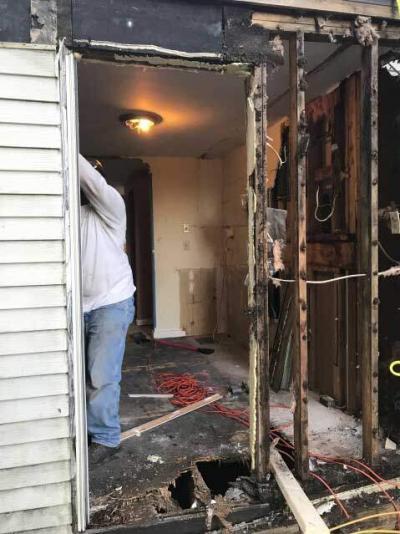Buying A Home? Don’t Forget a Mold Inspection
 When you look to buy a home, it takes a lot of research and resources to make sure you make a good investment. The housing market can be risky as you can never know all of the problems that may be in store for you in the future. We all know that over time there will be home repairs that will need to be done as well as ongoing maintenance. Most people try to minimize surprises by hiring a home inspector to evaluate the home.
When you look to buy a home, it takes a lot of research and resources to make sure you make a good investment. The housing market can be risky as you can never know all of the problems that may be in store for you in the future. We all know that over time there will be home repairs that will need to be done as well as ongoing maintenance. Most people try to minimize surprises by hiring a home inspector to evaluate the home.
While a home inspection is important and often required to receive funds from your lender, it may not be enough to ensure that your home purchase is a good one. Home inspectors don’t usually address mold as an issue. Most home inspectors exclude mold explicitly in their contracts to protect themselves from future liability. What this boils down to is that your dream home could turn into a nightmare if mold or moisture issues are not addressed or remain hidden through your purchase of the home.
Consider Hiring a Mold Expert
Mold its self is unlike to cause any serious structural damage to a home. Conditions present for mold to develop can cause structural issues like wood rot. Often surface mold can be covered up. It is hard to believe that anyone would hide a problem, but proving that a seller knows about mold and that it posed a health problem can be a real challenge. Getting a mold specialist opinion on your potential home before you make that purchase could be a smart idea. This is especially true if you have known health problems or allergies that could worsen with the presence of mold.
It doesn’t matter if the home is new construction or not, mold can be a potential issue. Old homes have years of use that could include water damage like a bathtub overflowing or sump pump fails. Newly built homes can have moisture control issues during construction that can be the foundation for mold development on structural framing. A residential mold expert will have the expertise and equipment to identify areas of concern and if any mold is present. It might sound alarming but all homes have some mold in them. Determining what is a normal amount. A mold inspector is a right person to determine that.
Things You Can Look for On Your Own
If you are looking to seal the deal on a new home note there are things you can do yourself by following these tips.
Avoid homes that have a musty odor. Mold produces VOCs (volatile organic compounds) that your nose interprets as a “musty” smell. If there is a must odor present there is likely a mold source creating the smell. The stronger the smell the more likely hood there is mold active.
Look for evidence of poor cleaning habits. There are three things mold need to thrive. Moisture, a food source, and warmth. You can usually find all three of these things in any home even if things are kept mostly dry. When you get a build-up of dust and grime on interior surfaces it can become a larger issue. Window casings, under the refrigerator, and behind heavy furniture are some key spots to look at. If there is a lot of accumulated debris or dust, it’s more likely that mold and other allergens will be present.
Check for evidence of past water problems. When looking at a potential home look for swollen baseboards, water spots, and stains or bowed and buckling floors. You can rarely have water damage without some evidence. Post issues are not always a sign of a problem but it could be a clue.
Be suspicious of homes that smell too clean or have heavy fragrances present. Homeowners may make simple and quick touch-ups or changes to increase the value of their home before selling it. If a basement smells strongly of bleach or there is a strong floral scent in the air, it could be that the seller is simply putting their best foot forward or it could mean that they are trying to hide an odor problem.
Look past the new finishes. When you put a home on the market it often involves some renovations. If you see that there is new flooring or the walls are freshly painted, look deep to see if there are any underlying problems or if the workmanship is questionable. Check out the corners of the room, inside closets and under cabinets. Legitimate Syracuse home improvement contractors won’t leave problems unfixed knowingly, but it’s often easy to spot a home where corners were cut and the chances of a hidden problem are higher.


